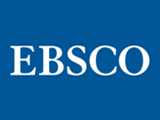
EBSCO Information Services (EBSCO) announces the availability of its newsletter builder toolthat lets corporate librarians and information professionals share information with stakeholders across their organizations via customized e-newsletters. EBSCO Newsletter Builder enables professionals in corporations of all sizes to find focused content from known sources and share it with colleagues easily.
The newsletter builder tool saves time and generates greater productivity in an organization by eliminating administrative work and allowing professionals to focus on mission-critical projects. It imports research results from EBSCO Discovery Service™, EBSCOhost® databases and external sources, into a customizable email newsletter format that can be quickly disseminated to targeted recipients. With the newsletter builder, librarians can create greater context around premium content by compiling a selected list of articles, including links to other resources, adding commentary and then emailing that information to colleagues.
Chappy Floyd, Vice President of Discovery Innovation at EBSCO, worked closely with customers to ensure the tool meets the needs of their information professionals. “The companies we worked with had a common issue. They knew that the time they were spending on copying, pasting and formatting articles to send to colleagues would be better spent on more valuable activities, such as analysis of the articles they were finding. EBSCO’s goal is to partner with corporations to help them find a way to get important information to clients, and within their organizations, as quickly and efficiently as possible. The newsletter builder solves the challenge of how to communicate valuable information without spending a lot of time formatting and distributing it.”
The efficiency of this tool makes it simple for knowledge managers to collect and disseminate robust content discovered during their research, and ensures that their colleagues receive it in a timely and easily-digestible manner. EBSCO Newsletter Builder simplifies workflows by increasing research efficiency. Librarians and information specialists can now focus their efforts on content curation and analysis, rather than spending valuable time compiling and formatting articles and citations.

























